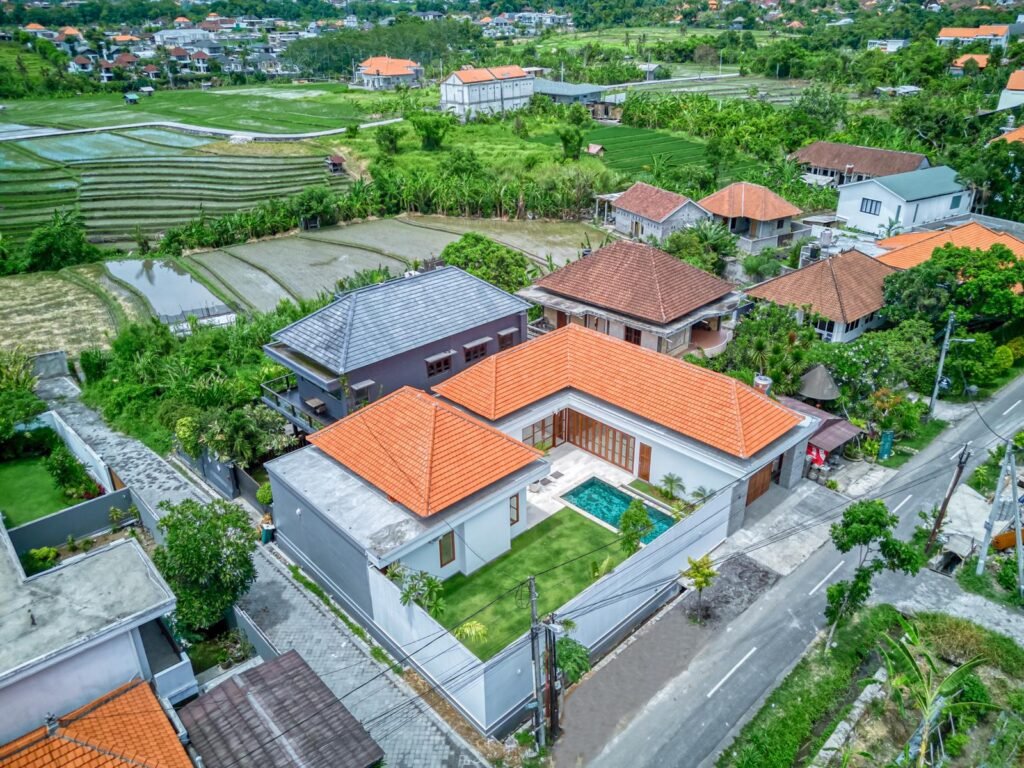Despite an increase in tourist arrivals to Bali compared to the same period last year, this positive trend is not reflected in the occupancy rates of legally operated villas. In fact, legal villa operators are reporting a sharp decline in bookings.
According to Kadek Adnyana, Chairman of the Bali Villa Rental Management Association (BVRMA), one of the main causes of this situation is the widespread practice of converting residential houses into commercial villas without the required permits or proper regulation.
Field investigations reveal that many of these units are developed by foreign investors who lease empty land on a long-term basis, construct properties, and operate them without complying with official standards and procedures.
“Licensed villas are required to obtain a range of permits, including a Building Permit, Certificate of Feasibility, Business Identification Number, tourism accommodation licenses, workers’ social security registration, and a Regional Taxpayer Number,” said Adnyana in a written statement on Sunday, May 18, 2025.
“However, illegal operators often begin running their businesses with only an IMB and NIB. What’s worse is that digital platforms help promote these unlicensed villas without adequate verification or filtering.”
As a result, he continued, unhealthy price competition, declining service standards, and the misuse of villa premises for criminal activities and illicit businesses such as covert prostitution have become increasingly common.
Shift in Preferences
This also leads to broader consequences such as environmental degradation, traffic congestion, reduced destination quality, and the loss of local tax revenue which should support regional development.
As reported by Nusabali, “We urge the government to take immediate and firm action by enforcing regulations, enhancing oversight, and guiding these illegal businesses toward compliance. Collaboration between the government, regional legislative bodies, and tourism associations is essential to preserve the integrity and sustainability of Bali’s tourism sector,” Adnyana stated.
“Let us not become bystanders while our homeland is exploited for the greed of a few. This is the time to unite and protect our own kitchen—Bali’s tourism!” he added.
BVRMA notes a shift in traveler accommodation preferences, with many tourists now choosing illegally rented residential homes disguised as villas.
As the peak travel season approaches—usually beginning mid-year—legal villa operators in Bali are growing increasingly concerned. Occupancy rates for villas managed by BVRMA members have plunged to below 30 percent.
Historically, May marks the beginning of the booking surge for the high season from June to August, with occupancy often reaching 80 percent. This year, however, bookings remain alarmingly low.
“The same time last year, occupancy was already at 80 percent leading up to the high season. Now, in May and June, the outlook is still unclear, and many properties have not received a single booking,” Adnyana said on Friday, May 16.
He emphasized that the decline is not due to a shortage of tourists, but rather a change in lodging preference. Many travelers now opt for unlicensed residential rentals, which are often marketed and priced as villas.
These illegal accommodations can charge significantly lower rates since they are not burdened by licensing and tax obligations.
“Licensed villas charge around IDR 8–9 million per night due to costs related to SLF, PBG, and taxes. Meanwhile, illegal villas can go for as low as IDR 5 million per night. Of course, tourists will choose the cheaper option—especially when they don’t know which properties are legal,” he added.
Currently, BVRMA represents around 75 management companies operating more than 3,000 licensed villa units across Bali. Most of its members are now reporting a sharp decline in occupancy levels—worse than ever before.
The association has coordinated with government stakeholders and is now part of the Bali Tourism Board to continue advocating for fair and legal business practices.
Public Dialogues with Policymakers
Furthermore, Adnyana highlighted that many of these illegal villas are managed by foreign nationals, with payments often made in the tourists’ home countries.
“Bookings are frequently processed offshore, which means no tax revenue enters Indonesia. Only the operational costs are sent here, while the profit stays abroad—and all we’re left with is the waste,” he explained.
Adnyana stressed the importance of clear regulation and enforcement in the villa and accommodation rental sector. He called for widespread education and outreach to investors and property owners on the legal requirements, including SLF, PBG, and tax obligations. “We welcome investment in Bali, but it must respect and follow the rules,” he emphasized.
Looking ahead, BVRMA plans to develop short- and long-term strategies, including public discussions or targeted dialogues with key policymakers. The aim is to build a fair, legal, and competitive villa rental ecosystem in Bali.
“We want to unify BVRMA’s vision and mission—to ensure that the legal villa business remains viable in Bali, in line with the regulations established by the government and properly enforced, so that we can achieve higher quality tourism,” he concluded.
Sources: BaliPrawara, NusaBali

